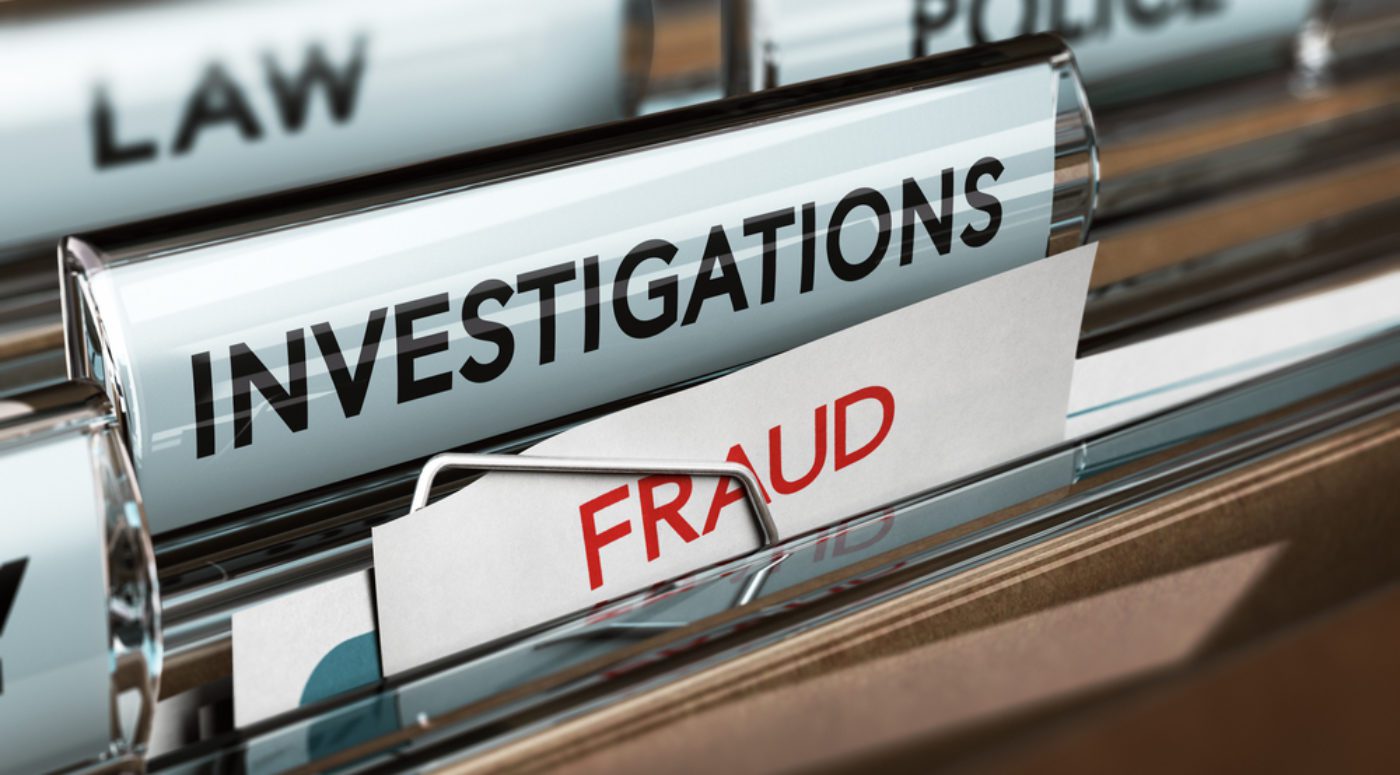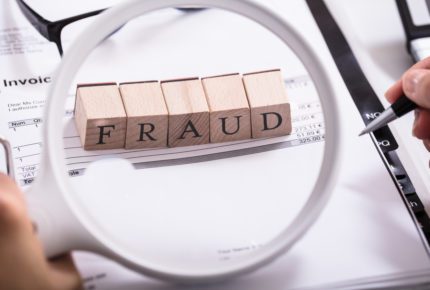

Because of the devastating impact that fraud has on individual victims as well as the economic wellbeing of the UK more generally, it is considered to be a serious offence. Fraud is rife globally, and the United Kingdom is one of the worst affected countries. Within the UK, fraud is the most commonly reported crime. Although the police have been criticised for failing to do enough to tackle fraud, where fraudsters are caught, the courts have been known to impose very harsh penalties. For example, when Australian boiler room fraud mastermind Jeffrey Revell-Reade was caught, and £7.5 million pounds was confiscated from him, he was sentenced to 9 years and 6 months in prison.
Even where you are a first time offender, if the fraud offence is serious enough, you will face jail time. However, if you are charged with fraud where the value of the offence is low, the chances of you being put behind bars for just short of a decade like Revell-Reade are slim to none. Read on to understand the offence of fraud, how it is investigated, and the sentence that you are likely to face if you are convicted.
What is the offence of fraud?
The offence of fraud is dealt with under the Fraud Act 2006. This outlines three different ways of committing fraud. These are:
- Fraud by false representation
- Fraud by failing to disclose information
- Fraud by abuse of position
Fraud by false representation
This offence is set out at Section 2 of the Fraud Act 2006. To be convicted of this offence the prosecution must prove that you dishonestly made a false representation. A false representation can be an oral or a written statement, including an electronic form of communication such as an SMS or an email. A false representation can be express or implied. For example, if you told your customer that you would inform them when their refund was received from the supplier, and instead received the refund but purposefully did not tell them, your dishonest failure to inform them of this event could constitute a false representation.
A statement is false if it is untrue or misleading. In order to be fraud, this statement must be made in the context of intending to make a gain for yourself or another, or exposing another to loss, or causing them loss. Therefore, if it was simply an untrue statement with no consequences attached, it would not be fraud. Fraud by false representation can take many forms. One example is romance fraud, where a scamster poses as a romantic partner via a dating website, and convinces their victim to send them money.
Fraud by failing to disclose information
This type of fraud is set out at Section 3 of the Fraud Act 2006. The offence is committed where the offender dishonestly fails to disclose information to another person that s/he is under a legal duty to disclose. Again, the failure to disclose must take place with the intention to make a gain for himself or another, or to cause a loss to another or to expose another to a risk of loss.
This offence is drafted widely in order to capture a wide range of situations. It includes most types of insurance fraud. It also covers failing to disclose information in a company prospectus, i.e. the document drafted by a company that sets out the details of the investment offering of shares/securities for sale to the public.
Fraud by abuse of position
Fraud by abuse of position is set out at Section 4 of the Fraud Act 2006. It occurs where a person abuses a position of trust or responsibility in order to dishonestly make a gain for themselves or another, or cause a loss or a risk of loss to another. This offence frequently covers fraud which occurs in the context of employment. For example, directors, business partners and employees who exploit their position in order to make an unlawful gain.
However, the Law Commission has explained that a ‘position’ does not necessarily have to mean a job role, it could also include a position of moral responsibility. For example, a trustee of a charitable organisation, or a person who is placed in the position of dealing with the financial affairs of another person could be found guilty of this offence if they use their role in order to enrich themselves.
What is the difference between fraud and theft?
Theft is the dishonest appropriation of property belonging to another with the intention to permanently deprive that person of their property. Meanwhile, fraud involves a dishonest act which causes an unlawful gain or loss or risk of loss to another.
These offences may seem similar. One of the key differences is that fraud offences can take place with the consent of the owner, where they are deceived as to the purpose of the transaction.
For example, in a fraud case, it could be the owner of a bank account who transfers the cash to the fraudster themselves. However, in some circumstances there could be an overlap where the CPS have to decide which charge to lay. In general, the offence of fraud is more likely to be used to prosecute online crime for example situations where money is stolen from a bank account.
Although theft could also be used in these circumstances to prosecute the stealing of intangible property, where the offence of fraud is made out, the CPS is more likely to charge fraud. This is because fraud has a larger maximum sentence of 10 years in comparison to theft that carries a maximum sentence of 6 years. Theft is also more likely to be used in circumstances where physical property is taken.
What happens if you are suspected of fraud in the UK?
Depending on the type and seriousness of the offence, your case may be investigated by the police or it could be investigated by the Serious Fraud Office or the National Crime Agency (NCA).
The Serious Fraud Office investigates cases relating to bribery, serious or complex fraud, or corruption. Meanwhile, the NCA focuses on cases relating to organised crime, including gang activity. Once the agency looking into the suspected offence has gathered their initial evidence, you may be arrested or you could be asked to attend a voluntary interview. If you are asked to attend a voluntary interview, you still have the right to legal representation.
However, the difference is that unlike an interview under arrest you can stop the interview and leave the police station or place where you are being interviewed at any time. Once law enforcement have completed their investigation, you may be charged, or you may be informed of the decision to take no further action.
If you are charged, you will be summonsed to appear at the Magistrates’ Court. This signifies the beginning of the prosecution against you.
What is the sentence for fraud?
The maximum sentence for fraud is 10 years’ imprisonment. That said, such a hefty prison sentence will be reserved for the most serious cases, where the case is heard in the Crown Court and where the value of the goods that have been stolen is very high. In addition to the value of the fraud, the court will also consider your culpability i.e. your role in the offence.
Using these two factors, the court will determine the starting point for your sentence. From there, the court will consider any aggravating or mitigating factors which apply to your personal circumstances which could increase or lessen the seriousness of the offence. For more information, see the guide produced by the Sentencing Council.
Will I go to jail for the first time committing fraud?
Whether you will face a jail sentence for your first offence of fraud varies depending on the amount of money involved, and whether you played a leading role or a less involved role in the offence.
For example, say you were involved in a bank fraud to the value of £10 000. You were pressured into becoming involved by your boyfriend, with whom you were in an abusive relationship.
The starting point for the sentence would be a medium level community order. This is based on an offence valued between £5000 to £20 000 where the culpability is low. The sentence range would be between a Band B fine and a high level community order. Where in this range your sentence will fall would depend on if there are aggravating factors present in your case, such as if the victims were especially vulnerable or if you have any previous convictions for similar offences.
Where to get further help?
If you have been accused of fraud, make sure you have an experienced and proficient criminal defence solicitor representing you. Depending on the circumstances of the alleged offence, there are a variety of defences that you may be able to rely upon. Stuart Miller Solicitors are a firm that you can rely upon. You could even get your case dropped before court. Contact us for a no obligation consultation today.

